FDP3 : Data Science and Its Applications
Chief Guest and Keynote1: Technology Laws Decoded

Keynote Speaker:
Ms. N. S. Nappinai
Supreme Court Advocate, Cyber Law expert and founder of Cyber Saathi
Brief Biography:
Ms. N. S. Nappinai, Supreme Court Advocate and founder of Cyber Saathi™ (www.cybersaathi.org), is a senior and renowned lawyer (since 1991) focusing on litigation and policy work, apart from her social responsibility engagements for training judges, police, armed forces, students and industry. Ms. Nappinai appears as counsel in cases pertaining to Constitutional, Criminal, IPR & Cyber laws.
“Ms. N S Nappinai is an Advocate practising at the Supreme Court of India and Bombay High Court. A pioneer in Cyber Laws, Ms Nappinai handles complex international and domestic litigations pertaining to Constitutional, Criminal and Commercial laws. Her repertoire of cases handled since 1991 includes white-collar offences; constitutional challenges; protecting IP in films, gaming and software; cyber crimes data breaches, online offences, cyber frauds and commercial litigations, through innovative strategies. She undertakes corporate transactions involving private equity and debt structuring, technology transfers and IPR, and advises on data protection laws across jurisdictions. Ms Nappinai lends her expertise in Cyber laws and in particular cyber crimes, electronic evidence and IPR for training Judiciary (including from SAARC), Government, Armed forces, Intelligence and Police officials and Industry. She contributed to the Law Commission in drafting the Indian legislation for establishing Commercial Courts in 2015. She is on the advisory board of several organisations. A Chevening (UK) and IVLP (USA) alumni, Ms Nappinai has addressed sessions at international events including at the UK House of Commons, USA, Singapore, Malta and Spain. Ms Nappinai is a mediator trained inter alia at WIPO, Geneva. Ms. Nappinai is a prolific writer, whose articles have been published in leading National and International publications. She has authored a seminal book on cyberlaws titled “Technology Laws Decoded” (in 2017), Her books on Cyber Safety and Emerging Technologies is forthcoming in 2020. Ms. Nappinai is founder of “Cyber Saathi”, an initiative intended to empower through knowledge of cyberlaws, threats and vulnerabilities.
Abstract: This inaugural keynote talk is focused on Technology Laws Decoded. In view of the increasing involvement of Technology in all walks of life, an understanding of the regulatory framework governing its use and misuse is essential for all. Technology Laws Decoded was conceived to become a single point reference on substantive and procedural aspects of Cyber Laws. Technology Laws Decoded is a seminal work on Cyber Laws. The book carves out the dalliance between Constitution, Crimes, IPR and Contracts with technology laws, thereby evolving into a separate field of study. This addresses procedural complexities through detailed analyses of Electronic Evidence and Jurisdiction in Cyberspace.
Keynote2: Technology Law
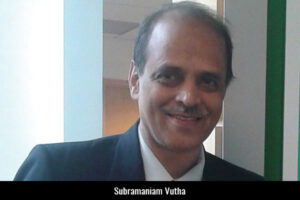
Keynote Speaker:
Mr. Subramaniam Vutha
Advocate, Founder Member of TLF and ACS at
The Institute of Company Secretaries of India
Brief Biography:
Mr. Subramaniam Vutha is Advocate, Founder Member of TLF and ACS at The Institute of Company Secretaries of India.
Mr. Subramaniam Vutha is Advocate, Founder Member of TLF and ACS at The Institute of Company Secretaries of India.
He is having Specialized legal consulting in the areas of:
1.IT Transactions and complex IT contracts 2. IPR Frameworks – policies, strategies, processes, guidelines, checklists, training, licensing consultancy, valuation for technology businesses 3. E- commerce laws
He has over 27 years of experience in negotiating and drafting commercial contracts, complex systems integration contracts, outsourcing contracts, licensing agreements, etc.
He is experienced in technology transfers, intellectual property issues.
On IPR: He advised a global leader in Banking solutions, from India, on a corporate IPR framework. He is a consultant to some leading companies on IPR Management [ IPR policies, processes, guidelines, checklists, training]. He is a founder president of Technology Law Forum – a multidisciplinary forum of lawyers, technologists, business executives, in-house counsel, finance professionals and others – that seeks to build Bridges between Technology and Law. He is featured speaker at various key conferences of lawyers, academics, professional bodies and the like on e commerce and IPR matters.
Co-author of a section in the LES International publication: Licensing Best Practices; strategic, territorial and technology issues. He is Past President of Licensing Executives Society India (www.lesi.org) , Member of International Technology Law Association, USA, Member of Advisory Board of the erstwhile publication of BNA International Inc., London – World Internet Law Report.
Abstract:
This keynote talk is focused on “Technology Law”, Technology law focuses on intellectual property rights, a complex branch of the legal system that deals with disputes over who ‘owns’ intangible ‘property’, such as creative works, patents, copyrights, and trade secrets. Technology law helps protect the creative who come up with these ideas and also ensures rights concerning the distribution of their work The third main focus for technology law is software licensing. This forces businesses into updating their existing programs or sourcing costly alternatives which inevitably disrupt their commercial activities This is where technology law steps in to ensure a fair but competitive marketplace which benefits all parties. It does so by regulating any issues relating to software installation, troubleshooting, and warranties.
Keynote3: AI for Social Good
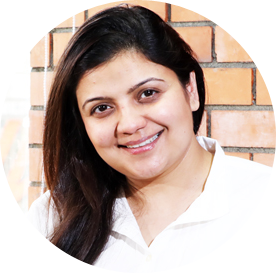
Keynote Speaker:
Aditi Avasthi
Founder and CEO of Embibe, Bengaluru
Brief Biography:
Aditi Avasthi is an Indian entrepreneur who is the founder and CEO of Embibe, an educational technology company, based in Bangalore. Economic Times Prime recognized her as the “Accenture Vaahini Innovator of The Year” and was awarded for it in Economic Times Prime Women Leadership Awards 2019 (ETPWLA’19). Education Congress chose her as the “Woman Entrepreneur of the Year” in 2019, and she was chosen the ‘Woman Of The Year’ by Vogue in 2018.She was also ranked among BBC’s top 100 Women in 2017.
Following her schooling in India, Ms. Aditi started her career at Tata Consultancy Services where she collaborated in the growth of new business initiatives in the UK. While at Tata Consultancy Services, she won AIMI Young Leaders project, although her nomination for the award was initially rejected as she was too young.
After her MBA, she joined Barclays as Deputy Chief of Product and Strategy Head for their mobile banking division in Africa. Later moving to Delaware, USA, in the year 2012, she worked at Barclaycard as the Director of Corporate Development in Mobile Commerce Business for an year. At Barclays, Avasthi contributed to overall mobile business strategy, and also led the design of the business cases on the monetization of mobile commerce.
In 2012, she founded Embibe, with $700,000 funding gathered from family and friends, and she received further investments from Kalaari Capital and Lightbox Ventures during the following year, which is a personalized engine for education based on a knowledge graph that connects all grades’ curriculum and learning context together, so students can achieve their targeted learning outcomes. The platform also provides services based on the Joint Entrance Examination – Advanced. Later she conducted a successful corporate round with Reliance Industries in 2018. In April 2018, Reliance Industries Limited announced an investment of $180 million in Embibe.
Awards and nominations-
- Fortune’s 40 Under 40, in 2015
- Business Impact Woman Entrepreneur of the Year, Digital Disruptor
- BBC 100 Women for addressing illiteracy in 2017
- 40 Under 40 by Business World 2017
- Vogue Woman of the Year, under the category Young achiever, in 2018
- CEO of the Year, Edtechreview, February 2018
- AICRA, January 2019
- Woman Entrepreneur of the Year, Indian Education Congress/ Entrepreneur magazine, February 2019
- CEO of the Year 2019 – India, CEO Monthly, March 2019
- Accenture Vahini Innovator of the Year, Economic Times Prime Women Leadership Awards, March 2019
Abstract: AI for Social Good
This keynote talk is focused on “AI for Social Good”, Through research, engineering, and initiatives to build the AI ecosystem, AI is used to address societal challenges. New ways of approaching problems can be provided and meaningfully improve people’s lives. With AI, we have another tool to explore and address hard, unanswered questions. What if people could predict natural disasters before they happen? Track disease as it spreads, to eliminate it sooner? Or dramatically improve the lives of people with disabilities?
Topic: Life Cycle of Data Science: Preparation, pre-processing, modelling, analytics, evaluation and visualization, Case Study: AI Enabled Internship Assessment Tool
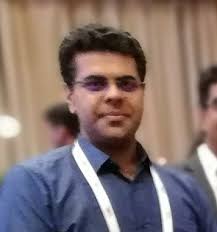
Invited Speaker:
Mr. Rocky Jagtiani
Head – Training &Content Development Suven Consultants & Technology Pvt Ltd.
Adjunct Professor & Industry Mentor , SPIT
Brief Biography:
He is mentor to many top engineering colleges for training faculties through FDP’s and Bootcamps. He is involved in mentoring students on skill based subjects like Problem solving in Java data structures, Data Analytics, Statistics using Excel, Machine Learning and Advanced ML focusing on NLP*
Mr Rocky Jagtiani has 19 year of training experience in Open Source Technologies like Java, Python, JavaScript, Databases & Machine learning.
By profession he is excellent (+qualified) technology trainer in following technologies – Web Development using PHP / Python / Java programming, Mobile App Development training in Android, Oracle SQL / PL-SQL programming, ML, DL using Python. As a passion he love to analyse IT Job requirements of client companies and source people with most relevant skill-sets. This helps both the Companies and the deserving Candidates. He is registered as a freelance trainer with LnD departments of 17 IT MNC’s in India. He loves to analyse data using tools like Qlikview, Tableau or Orange, As well solve (real) problems using Python & Java. Has trained more than 15000 young working professionals (0-6 yrsWorkEx) till date.
He has conducted lot of android work shops across colleges in Mumbai. Many of the Certifications done are- Oracle Database Associate, Google Analytics ,Pandas & NLP, Oracle Certified Java Professional ,Python & Machine Learning ,Hacker rank certified
Interests- Cycling and walking (Keep healthy for higher productivity), Organizing Social Events (Acting as a volunteer in Social Causes and awareness).
He has also involved in many social commitments.
Topic: Life Cycle of Data Science: Preparation, preprocessing, modelling, analytics, evaluation and visualization, Case Study: AI Enabled Internship Assessment Tool
These sessions includes overview of the seven steps that make up a data science lifecycle – business understanding, data mining, data cleaning, data exploration, feature engineering, predictive modeling, and data visualization. Data science is quickly evolving to be one of the hottest fields in the technology industry. With rapid advancements in computational performance that now allow for the analysis of massive datasets, we can uncover patterns and insights about user behavior and world trends to an unprecedented extent. This is hands on session on Case Study: AI Enabled Internship Assessment Tool
Topic: Path from AI to Deep Learning, Convolutional Neural Network, Hands-on-session: CNN and Deep Autoencoder

Invited Speaker:
Dr. Pooja Raundale
Professor in M.C.A Department
Sardar Patel Institute of Technology
Brief Biography:
Dr. Pooja Raundale is a Professor and Head of M.C.A Dept, Sardar Patel Institute of Technology, Mumbai
Research Interests : C programming, Artificial Intelligence, Computer Graphics, Object Oriented Programming in C++, Data Structures, Machine Learning, Deep Learning
Dr. Pooja Raundale is working as Professor and Head of MCA Dcepartment at SPIT, Mumbai.
She is founder director of OMIST consultancy (A technological startup). She is AI advisor of CAAGAY technology startup. She is a Faculty mentor in domain of AI, ML for Sardar Patel Technology Business Incubation. She possesses 17 Years teaching and 5 Years industry experience. Her Ph.D. students are working in the area of AI, ML and Big data. Currently she is a vibrant member of BOS for MCA in SPIT, Member of Academic Council for SPIT and Chairperson, BOS MCA in university of Mumbai. She worked as Member of Editorial Board of several research Journals, on various boards, Session Chair, Member Panellist, Keynote Speaker, Referee and Reviewer for National – International conferences. She has 1 patent, 11 National and 15 International papers to her credit. She is a resource person for several STTP/ FDPs. She has received the research grant from Computer Society of India and University of Mumbai. Her research interests are AI, machine learning and data science.
Topic: Path from AI to Deep Learning, Convolutional Neural Network, Hands-on-session: CNN and Deep Autoencoder
Deep learning is ubiquitous right now. From the top research labs in the world to startups looking to design solutions, deep learning is at the heart of the current technological revolution. We are living in a deep learning wonderland! This session is focused on path from AI to Deep Learning. Convolutional Neural Networks (ConvNets or CNNs) are a category of Neural Networks that have proven very effective in areas such as image recognition and classification.. A Convolutional neural network (CNN) is a neural network that has one or more convolutional layers and are used mainly for image processing, classification, segmentation and also for other auto correlated data. This is hands on session on CNN and Deep Autoencoder. A deep autoencoder is composed of two, symmetrical deep-belief networks that typically have four or five shallow layers representing the encoding half of the net, and second set of four or five layers that make up the decoding half.
Topic: Deep Autoencoder in Real Time, Hands-on-session: CNN and Deep Autoencoder
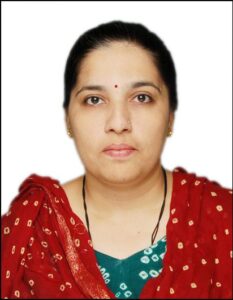
Invited Speaker:
Dr. Aarti Karande
Assistant Professor, M.C.A Department
Sardar Patel Institute of Technology
Brief Biography:
Dr. Aarti Karande is an Assistant Professor in M.C.A Dept, Sardar Patel Institute of Technology, Mumbai
Research Interests : Object Oriented Programming, Service Oriented Architecture, Soft Computing Data Mining, Software Engineering
Dr. Aarti Karande is an Assistant Professor in M.C.A Dept, Sardar Patel Institute of Technology, Mumbai. Madam has successfully completed Doctor of Philosophy Degree (PH.D ) in Computer Engineering from Sardar Patel Institute of Technology.
At present she is holding multiple software functional & technical skills related to Computer Science. Her key-skills includes Software computing, Business Processing models, Cloud Computing, Software Engineering.
She worked as editorial board and program committee in various International journals and international conferences. She has published many papers in various international journals/ conferences of repute. She is member of International Economics Development Research Center, International Association of Computer Science and Information Technology (IACSIT), CSI,ISTE, Member of IEEE Intelligence Computational Society and WIE faculty chair for S.P.I.T.
Topic: Deep Autoencoder in Real Time, Hands-on-session: CNN and Deep Autoencoder
This is hands on session on CNN and Deep Autoencoder. A deep autoencoder is composed of two, symmetrical deep-belief networks that typically have four or five shallow layers representing the encoding half of the net, and second set of four or five layers that make up the decoding half. They compress the input into a lower-dimensional code and then reconstruct the output from this representation. The code is a compact “summary” or “compression” of the input, also called the latent-space representation. An autoencoder consists of 3 components: encoder, code and decoder. They take images as inputs, and output a probability distribution of the classes. Autoencoders (AE) are a family of neural networks for which the input is the same as the output. They work by compressing the input into a latent-space representation, and then reconstructing the output from this representation
Topic: Time Series Analysis, Properties and Prediction Models
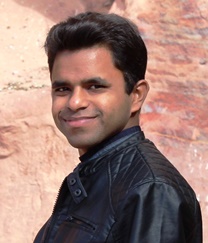
Invited Speaker:
Dr. Mayank Agarwal
IIT Patna
Brief Biography:
Dr. Mayank Agarwal is an Assistant Professor in IIT Patna
Dr. Mayank Agarwal is an Assistant Professor in IIT Patna.
He has done PhD form IIT Guwahati and Post-Doctoral researcher, Ben Gurion University of Negev, Israel.
His research areas includes – 802.11 Wireless Network , Wi-Fi Security, Discrete Event Modeling. He has published many papers in various international journals/ conferences of repute in the domain
He has awarded TCS Research Scholar Fellowship in 2011.
Topic: Time Series Analysis, Properties and Prediction Models
Time series analysis comprises methods for analyzing time series data in order to extract meaningful statistics and other characteristics of the data. A time series is a sequence of numerical data points in successive order. In investing, a time series tracks the movement of the chosen data points, such as a security’s price, over a specified period of time with data points recorded at regular intervals. Time series forecasting is the use of a model to predict future values based on previously observed values. Time series analysis is recording data at regular intervals. The analysis helps in forecasting future values based on past trends, which often leads to an informed decision, crucial for business.
Topic: Deep Neural Network Learning Techniques: RNN, LSTM, and GRU

Invited Speaker:
Dr. Mayank Singh
Assistant Professor,
Indian Institute of Technology, Gandhinagar
Brief Biography:
Natural Language Processing, Text Mining, Information Retrieval, and Evolving Large-scale Networks
Dr. Mayank Singh, an Assistant Professor in the Department of Computer Science and Engineering, Indian Institute of Technology, Gandhinagar. He joined IITGN as Assistant Research Professor on 2nd July 2018. Currently, He is leading the Computational Linguistics and Complex Social Networks Group (LINGO). His primary research interests include Natural Language Processing, Text Mining, Information Retrieval, and Evolving Large-scale Networks. Specifically, He is highly interested in application areas such as information extraction (both text and visual) from scientific articles, curating and analyzing social media text in resource constraint Indian languages, citation networks, and Twitter and WhatsApp user interaction networks.
Topic: Deep Neural Network Learning Techniques: RNN, LSTM, and GRU
A recurrent neural network (RNN) is a class of artificial neural network where connections between units form a directed graph along a sequence. This allows it to exhibit dynamic temporal behavior for a time sequence.In other neural networks, all the inputs are independent of each other. Long short-term memory is an artificial recurrent neural network architecture used in the field of deep learning. Unlike standard feedforward neural networks, LSTM has feedback connections. It can not only process single data points, but also entire sequences of data. Gated recurrent units (GRUs) are a gating mechanism in recurrent neural networks, introduced in 2014 by Kyunghyun Cho et al. The GRU is like a long short-term memory (LSTM) with a forget gate, but has fewer parameters than LSTM, as it lacks an output gate.
Topic: Recurrent architectures for handling sequential and time series data

Invited Speaker:
Dr. Mansi Patwardhan
Senior Scientist
Tata Consultancy Services Pune
Brief Biography:
Natural Language Processing, Deep Learning, AI and Machine Learning
Dr. Mansi Patwardhan is currently senior scientist at Tata Consultancy Services Pune
Leveraging her skills and creativity to seek possible opportunities for contributing as an AI and machine learning expert in the field of Natural Language Processing and Computer Vision.
She has Strong research, technical and analytical background
She is Self-motivated, enterprising, fast learner, team oriented, Proven leadership capabilities with Excellent verbal and written communication skills
Her Specialties are : Expert in Natural Language Inference and Reasoning, Image Understanding, Deep Learning, AI and Machine Learning
She has received many Honors and Awards like – VIT shree Award, IEI Young Engineers Award, Allen Chapman Research Travel Award, International Travel Grant, Graduate Research Assistantship.
Topic: Recurrent architectures for handling sequential and time series data
A recurrent neural network (RNN) is a class of artificial neural network where connections between units form a directed graph along a sequence. This allows it to exhibit dynamic temporal behavior for a time sequence. different time series forecasting techniques are- Simple Moving Average (SMA) Exponential Smoothing (SES) Autoregressive Integration Moving Average (ARIMA) Neural Network (NN)
Topic: Safeguarding Online Communities from Toxicity
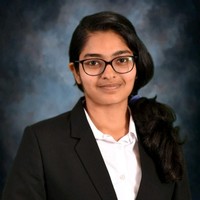
Invited Speaker:
Ms. Devanshi Bhatt
Data Scientist
Spectrum Labs USA
Brief Biography:
She is a Data Scientist at Spectrum Labs USA
Key skills: Leadership, Teamwork, Communication and Collaboration
She is a Data Scientist at Spectrum Labs USA. She is Graduate in the Information Management program at the University of Illinois Urbana-Champaign
She is deeply interested in the field of Data Science & Analytics actively seeking internship opportunities to work in the domain.
Key skills: leadership, teamwork, communication and collaboration.
She believes in the ‘Don’t Try It, Just Do It’ attitude.
Her Work Experience includes-
Data Science Intern, San Francisco Bay Area
Technology Consultant, Business Intelligence Group at UIUC
Graduate Research Assistant, Institute of Genomic Biology, UIUC
Data Analyst,Illini Union Bookstore
She has done Masters degree from the University of Illinois Urbana-Champaign and Bachelors degree from Bharatiya Vidya Bhavans Sardar Patel institute of technology.
Topic: Safeguarding Online Communities from Toxicity
An estimated 1% of a new community is toxic. If that is ignored, the best community members leave and toxicity can grow as high as 20%.The rapid spread of toxic news is what makes online communities today horrid and so easy to use as a platform to exhibit poor behavior. The causes for this poor behavior can be because Reddit has a “crowd mentality” among its users. It might be best to avoid sending them a friend request or commenting on their post in the first place who is showing poor behaviour. Respond with politeness. If a toxic person tries to stir up trouble with you, don’t give them any ammunition. Reply to a critical or competitive remark by saying something neutral or positive.
Topic: AI for Healthcare: Emerging Trends and Use Cases

Invited Speaker:
Prof. (Dr.) Mayuri A. Mehta
Professor & PG In-Charge
SCET, Surat
Brief Biography:
Research Interests:
Data Science, Machine Learning/Deep Learning, Health Informatics, Computer Algorithms, Python Programming, Research Methodology, Distributed Computing, Genetic Algorithms.
She is currently a Professor, Computer Engineering, SCET, Surat. Madam has 20 years of experience in teaching field. She has published more than 30 papers in various international journals/ conferences of repute.
Madam has delivered many Expert Talks/Conducted Workshops-Tutorials in AI, ML and healthcare related domain. She is member of IEEE,ISTE and CSI.
Her area of expertise includes Data Science, Machine Learning/Deep Learning, Health Informatics, Computer Algorithms, Python Programming, Research Methodology, Distributed Computing, Genetic Algorithms.
Topic: AI for Healthcare: Emerging Trends and Use Cases
AI offers a number of advantages over traditional analytics and clinical decision-making techniques. Learning algorithms can become more precise and accurate as they interact with training data, allowing humans to gain unprecedented insights into diagnostics, care processes, treatment variability, and patient outcomes. AI in Healthcare is transforming the way patient care is delivered, and is impacting all aspects of the medical industry, including early detection, more accurate.
Topic: Case Study: Object Detection using CNN and its application in real time
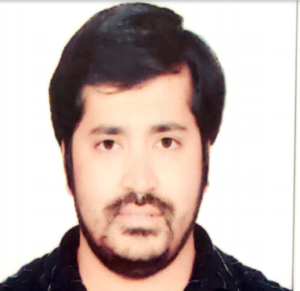
Invited Speaker:
Mr. Pankaj Sharma
Senior Software Engineer
at Mphasis Ltd.
Brief Biography:
Technical Skills-
Languages: SQL, Python, Shell, JavaScript/jQuery, R, Django, PHP,DBMS: PL/SQL, Oracle 11g, SQL Server 2005/2008
Tools / Libraries / Framework Scikitlearn, Pandas, Numpy, NLTK, Matplotlib, SciPy, Keras, Tensorflow
General Machine Learning, NLP, Deep Learning, RNN
Mr. Pankaj Sharma is currently working as Senior Software Engineer at Mphasis Ltd. He is a Data Scientist with an experience in executing data-driven solutions to increase efficiency, accuracy, and utility of internal data processing. He is experienced at creating data regression models, using predictive data modeling, and analyzing data mining algorithms to deliver insights and implement action-oriented solutions to complex business
problems. He is a Senior Developer with more than Seven years of IT experience in developing and supporting the Web-based n-tier architecture applications using PL/SQL, HTML, with jQuery. He has about 2.5 years of working experience on client site as an onsite coordinator with an onshore/offshore model on development and maintenance projects. He has strong database maintenance and development skills with extensive knowledge in creating and working with PL/SQL packages, functions and triggers. He has capability to explore, learn and understand newer business domains and technology.
Topic: Case Study: Object Detection using CNN and its application in real time Real-time object detection is the task of doing object detection in real-time with fast inference while maintaining a base level of accuracy. In object detection, an RCNN is used to focus on regions since determining the location of multiple objects is essential to this type of model. An image is split into a lot of different boxes (regions) to check if any of them have signs of an object.
Topic: Data Science and Machine Learning with MATLAB
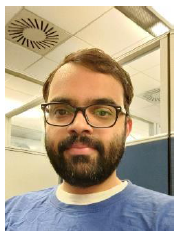
Invited Speaker:
Mr. Amith Kamath
MathWorks
Brief Biography:
Amith is an Education Technical Evangelist at MathWorks
Amith is an Education Technical Evangelist at MathWorks and works with the academic institutions in India on the adoption of MathWorks’ workflows in curriculum and research.
Amith has been with the MathWorks for seven years and has previously worked with the Engineering Development Group and Software Development in the Image Processing and Computer Vision areas focusing on workflows for image registration and pixel labeling. His areas of interests include Computer Vision and Software Engineering. Amith has a Bachelor’s degree in Electrical Engineering from NITK Surathkal and a Master’s degree in Electrical Engineering from the University of Minnesota.
Topic: Data Science and Machine Learning with MATLAB
This session includes –
Introduction to Data Science:
1. Go over definitions, relations between various terms 2. Demonstration on Exploratory Data Analysis 3. Building simple curve fitting models
Machine Learning and more:
1. Comparing models by viewing their decision surfaces 2. Exploring models and choices graphically 3. Working with large datasets and challenges
Topic: Data Science and Machine Learning with MATLAB
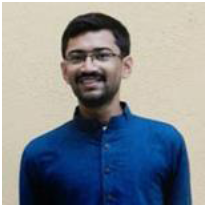
Invited Speaker:
Mr. Pranav Lad
MathWorks
Brief Biography:
Pranav Lad is an Education Technical Evangelist at MathWorks, Pune
Pranav Lad is an Education Technical Evangelist at MathWorks, based out of Pune. He works closely with academic institutions in order to help accelerate the pace of research and learning outcomes. His technical expertise lies in the field of vibrations, nonlinear dynamics and machine learning. He has authored various research papers in international journals and conference proceedings. He has previously worked as a research assistant at IIT Bombay, wherein he interacted with various industries for consultation. He is about to finish his doctorate in Mechanical Engineering from the Indian Institute of Technology Bombay. Prior to that he received his bachelors from University of Pune
Topic: Data Science and Machine Learning with MATLAB
This session includes –
Introduction to Data Science:
1. Go over definitions, relations between various terms 2. Demonstration on Exploratory Data Analysis 3. Building simple curve fitting models
Machine Learning and more:
1. Comparing models by viewing their decision surfaces 2. Exploring models and choices graphically 3. Working with large datasets and challenges
Topic: Skin Disease Detection

Invited Speaker:
Dr. D. R .Kalbande Dean Industry Relations,
S.P.I.T. Mumbai
Brief Biography:
Research Interests: Soft computing (Neural Networks, Fuzzy Logic), Computer Network, Human Machine Interaction, Decision making and business Intelligence, Mobile application development for social cause.
He is currently a Professor, Computer Engineering and Dean(Industry Relations), Sardar Patel Institute of Technology, He has obtained a Ph.D in Technology from University of Mumbai in 2011. He has been awarded a Post-Doctorate (PDF) from Tata Institute of Social Sciences(T.I.S.S.) in 2016. Skinzy’s flagship product “DermaPhoto” is an AI based mobile application that is able to detect skin diseases. He has patented 6 innovative ideas of his research work. He has guided two PhD theses. He has over 19+ Years of experience in teaching & research. His research interests include Soft computing (Neural Networks, Fuzzy Logic), Computer Network, Human Machine Interaction Decision making and business Intelligence, Mobile application development for social cause, ICT for semi rural development for social cause
Topic: Skin Disease Detection
Use of computer technology can make it simpler to detect the diseases just from the images of the infected skin image and could assist the human’s ability to analyze complex information. Many Apps provides a simple and effective solution to your skin-related diagnostic questions. It helps you identify skin rash within seconds. This consists of AI techniques involving image processing and machine learning for the detection of skin diseases.
Topic: : IoT on Edge with Linear Regression,TinyML

Invited Speaker:
Govind Gundalkar
Engineer at Microdevice Technologies
Brief Biography:
He is certified by SafeTTy Systems UK upto Level 1 to conduct SafeTTy Certified programme in the embedded systems domain.
He is certified by SafeTTy Systems UK upto Level 1 to conduct SafeTTy Certified programme in the embedded systems domain.
Embedded Systems is his passion. He like to train people in the embedded systems domain.
He is Interested in microcontroller/microprocessor architectures.Worked on 8085 and 8086 intel architectures. He was working on 8051 core from Silicon labs and Worked on ARM architecture for the Cortex M3 and Cotex M4 core. He is Comfortable in using Texas Instruments parts for the ARM architecture. He worked on developing systems using KEIL or Code Composer Studio IDE .
He is Currently working on TT architectures for embedded systems with MSP architecture from Texas Instruments.
Topic: IoT on Edge with Linear Regression, TinyML
Edge analytics is a model of data analysis where incoming data streams are analyzed at a non-central point in the system such as a switch, a peripheral node, or a connected device or sensor.
Edge computing is a distributed computing paradigm bringing compute, storage, and applications closer to where users, facilities, and connected things generate, consume, and/or leverage data. Edge computing is already used in ample applications, mainly in combination with the Internet of Things (IoT).
Topic: Similarity Analysis of Legal Documents
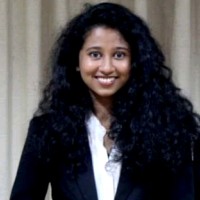
Invited Speaker:
Jai Puro
Technical Analyst at credit Suicce
Brief Biography:
Jai Puro is currently working as Technical Analyst at credit Suicce.
Jai Puro is currently working as Technical Analyst at credit Suicce.
She has done Bachelors degree from Bharatiya Vidya Bhavans Sardar Patel institute of technology. She was summer intern at credit Suicce
Topic: Similarity Analysis of Legal Documents
Computing the similarity between two legal documents is an important challenge in the Legal Information Retrieval domain. Efficient calculation of this similarity has useful applications in various tasks such as identifying relevant prior cases for a given case document. Network-based measures are not always meaningfully applicable since legal citation networks are usually very sparse. On the other hand, only primitive text-based similarity measures, such as TF-IDF based approaches, have been tried till date. In addition to TF-IDF based measures, advanced similarity measures (such as topic modeling) and neural network models (such as word embeddings and document embeddings) can be used.
Topic: Similarity Analysis of Legal Documents

Invited Speaker:
Janani B
Software Engineer – AI Trainee
at SharedReach
Brief Biography:
She is Software Engineer- AI Trainee at SharedReach
Janani B is Software Engineer- AI Trainee at SharedReach
She has done Bachelors degree from Bharatiya Vidya Bhavans Sardar Patel institute of technology. Her area of interest includes-Deep learning, Machine Learning, Python programming, Data Science and NLP
Topic: Similarity Analysis of Legal Documents
Computing the similarity between two legal documents is an important challenge in the Legal Information Retrieval domain. Efficient calculation of this similarity has useful applications in various tasks such as identifying relevant prior cases for a given case document. Network-based measures are not always meaningfully applicable since legal citation networks are usually very sparse. On the other hand, only primitive text-based similarity measures, such as TF-IDF based approaches, have been tried till date. In addition to TF-IDF based measures, advanced similarity measures (such as topic modeling) and neural network models (such as word embeddings and document embeddings) can be used.
Topic: Anomaly Detection Methods for Endoscopic Videos
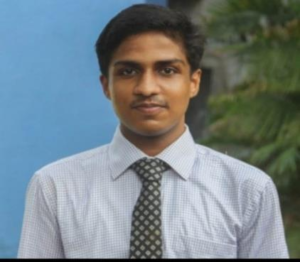
Invited Speaker:
Mr.Tejas Chedda
Artificial Intelligence Engineer @ Miko
He is Artificial Intelligence Engineer @ Miko, He is an incoming student for Masters in Computer Science at the University of Massachusetts Amherst (starting Spring 2021)
His interests lie in the areas of Software Development and Machine Learning, and its application to various sectors including healthcare.
He did undergraduate in Computer Engineering from Sardar Patel Institute of Technology, Mumbai, He has worked on natural language processing projects at Miko, an advanced robotics, AI startup and Ugam, a leading next-generation data analytics company in a professional capacity. At Skinzy Software Solutions, He worked on skin disease prediction from images and gained experience in building computer vision-based applications. He also worked as a research intern at Indian Institute of Technology (IIT) Bombay, for the project – “Social Media Sentiment Analysis for the Hindi Language”. Additionally, He has developed multiple apps that are published on Google Playstore.
Topic: Anomaly Detection Methods for Endoscopic Videos
Anomaly Detection is the technique of identifying rare events or observations which can raise suspicions by being statistically different from the rest of the observations. Contextual Anomaly: An observation is a Contextual Anomaly if it is an anomaly because of the context of the observation. This is Hands on session focusing on different methods used for anomaly detection for Endoscopic Videos
Topic: Anomaly Detection Methods for Endoscopic Videos

Invited Speaker:
Rithvika Iyer
Data Scientist
Reliance Jio
Brief Biography:
She is a data scientist at Reliance Jio
She is a data scientist at Reliance Jio. She has done bachelors degree, from Sardar Patel Institute of Technology, Mumbai. She was machine Learning Research Intern in Indian Institute of Technology, Bombay. She worked as Machine Learning Software Developer in Skinzy Software Solutions Pvt Ltd. She is Awarded Best Engineering Student of Mumbai 2020.
She was a winner, Smart India Hackathon in 2019 and Won the Innovation Award at the Smart India Hackathon 2018 for a project aimed at Stakeholder Engagement in Smart Cities
Topic: Anomaly Detection Methods for Endoscopic Videos
This is Hands on session focusing on different methods used for anomaly detection for Endoscopic Videos. Anomaly Detection is the technique of identifying rare events or observations which can raise suspicions by being statistically different from the rest of the observations. Contextual Anomaly: An observation is a Contextual Anomaly if it is an anomaly because of the context of the observation.
Topic: Anomaly Detection Methods for Endoscopic Videos

Invited Speaker:
Soumya Koppaka
Piramal pharma
Brief Biography:
She is graduate engineering trainee at Piramal Pharma Ltd.
She is graduate engineering trainee at Piramal Pharma Ltd. She is Computer Engineer, from Sardar Patel Institute of Technology, Mumbai . She has an interest in technology including the latest trends and possibilities. She is a curious, enthusiastic learner who is very driven and motivated. She like to develop new technologies using Artificial Intelligence. She is in Winning team of Smart India Hackathon 2019
Topic: Anomaly Detection Methods for Endoscopic Videos
This is Hands on session focusing on different methods used for anomaly detection for Endoscopic Videos. Anomaly Detection is the technique of identifying rare events or observations which can raise suspicions by being statistically different from the rest of the observations. Contextual Anomaly: An observation is a Contextual Anomaly if it is an anomaly because of the context of the observation.
Topic: AI Case studies on Autonomous Driving

Invited Speaker:
Pawankumar Phakatkar
KPIT Technologies Pvt.Ltd.
Brief Biography:
Education Specialist at KPIT
He is an Education Specialist in Education and Competency Development at KPIT.
He has done Masters Degree from from Sardar Patel Institute of Technology, Mumbai.
Certifications done are-
Deep Learning with MATLAB,MathWorks
Machine Learning with MATLAB, MathWorks
Programming Xilinx Zynq SoCs with MATLAB and Simulink, MathWorks
Generating HDL Code from Simulink, MathWorks
MATLAB Fundamentals, MathWorks
Topic: AI Case studies on Autonomous Driving
Autonomous driving is one of the key application areas of artificial intelligence (AI). Autonomous vehicles (AV) are equipped with multiple sensors, such as cameras, radars and lidar, which help them better understand the surroundings and in path planning. These sensors generate a massive amount of data. AI can be witnesses working its magic through robots putting together the initial nuts and bolts of a vehicle or in an autonomous car using machine learning and vision to safely make its way through traffic.
Topic: Managerial Applications of Data Analytics

Invited Speaker:
Dr.Shiba Prasad Parhi
Symbiosis School of Banking and Finance
Brief Biography:
Faculty Member at Symbiosis School of Banking and Finance, Pune
He is an Assistant Professor at Symbiosis School of Banking and Finance, Pune, and Adjunct Faculty at COEP, Pune. Sir has done PhD from Aligarh Muslim University in year 2018 and Completed 4 month Full time FDPM from IIM Ahmadabad followed by 1 year Research under
IIM Ahmadabad. He has worked on two funded research project and have 11 research publications in reputed international journals and conferences.
His area of interest includes-
Behaioural Finance, Mathematical Modelling and Simulation in Finance, Excel Modelling in Finance, Financial Engineering and Analytics, International Finance Management.
He is Qualified as Resource person for Symbiosis Centre for Corporate Education (SCCE), Pune and Resource person for General Electrical (GE) Management Development Program.
Topic: Managerial Applications of Data Analytics
Relying on data can help any operation to make better big decisions and improve overall management. From cognitive computing to applying data to streamline in-office processes, operations in both the public and private sectors can put data to use to improve management and inform business decisions. Data Scientists and Analysts use data analytics techniques in their research, and businesses also use it to inform their decisions. Data analysis can help companies better understand their customers, evaluate their ad campaigns, personalize content, create content strategies and develop products
FDP2 : Artificial Intelligence & Machine Learning
Guest of Honour

Chief Guest: Col B. Venkat
Director, Faculty Development Cell, AICTE
Brief Biography: Col B. Venkat is currently holding position of Director, Faculty Development Cell, AICTE
Keynote: Application of Data Analytics for decision making
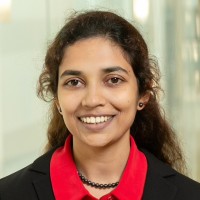
Keynote Speaker:
Swagat Bhandari
Indian Administrative Officer(IAS)
Brief Biography:
Swagat Bhandari is an Indian Administrative Services officer of 2010 batch, Kerala cadre. She recently completed MBA from University of Michigan, laying emphasis on Business Analytics and Strategy. She has been working as an IAS officer since 2010 and has headed several departments like planning and economic affairs, tribal welfare, etc. She has served as Managing Director – Milma, District Electoral Officer and District Collector – Kottayam and Sub Divisional Magistrate – Kochi
Madam is Indian Administrative Services Officer (IAS) working for government of India since 2010.She is team player and believes in leading by example. She is passionate about working for others’ welfare and love challenges. She has executed large scale projects, written grants and secured funding, worked in the field in remote, inaccessible areas and interacted with thousands of people from different walks of life and to brought positive differences in their life. Madam has wide experience in various fields as-
MBA Summer Associate at Danaher- Ormco
She worked on a cross functional project to analyze educational events conducted at Ormco, over 4 years. she evaluated return on investment of educational events over 4 years, using monthly incremental revenue data and customer and sales perspectives, suggesting measures to achieve 50% cost savings in one of the programs.
MBA Consultant – The NRP Group LLC
She recommended market entry into new segment of single family housing by identifying factors impacting rental behavior of millennial and their segmentation.
Joint Secretary and Director-Central Plan Monitoring Unit
Madam coordinated with 20+ departments in State of Kerala, India to ensure speedy implementation of developmental project by resolution of inter departmental issues.
She was involved in implementation of CM’s Web portal and rolled out and implemented training for all employees for seamless implementation of the portal.
District Collector and District Electoral Officer -Kottayam
She was responsible for provision of basic services like water, sanitation and healthcare facilities to the 2M population in the district. She negotiated acquisition deals with 70+ land owners by conducting financial valuations using comparable sales and proximity to value centers, expediting project implementation. She formulated policies for children’s home and women’s home in the district, and initiated skill development programs for their empowerment.
Managing Director – Kerala Co-operative Milk Marketing Federation Ltd
As Managing Director of KCMMF, She was looking after procurement and sales of 0.3 M gallons of milk per day in Kerala, manufacture and sales of milk products, construction of new dairy plant and running of 18 dairy plants and 2 cattle feed plants and most importantly, welfare of dairy farmers.
Deputy Secretary – Planning and Economic Affairs Department, Government of Kerala
She supervised the implementation and progress of Central Govt. Budget allocation of funds for Kerala State. She also reviewed the implementation of Members of Parliament Local Area Development plan where Senate and House representatives suggested plans to improve standard of living for public in their constituencies.
Director-Scheduled Tribes Development Dept
She led a team of 19 to manage $60M budget allocation for the welfare and development of Scheduled Tribes in the state of Kerala.
She prepared a skill development project to cover 4000 tribal youths, presented to the Federal Govt and got it approved. It included a provision for training of 420 tribal youth in one of the best skill training institutes in India. She collaborated with public health institutes, NGOs and local government bodies, to reduce infant mortality from 58 to 30, in most backward block of Kerala.
Director-Dept of Lotteries
She managed sales of lottery tickets worth $ 0.9B, generating profit of $ 0.2B, used entirely for financing out of pocket expenditure of poor patients.
Sub Collector – Fort Kochi
She was responsible for maintenance of law and order in the district (population 3.8 million) and Coordinated provision of basic services like safe drinking water during calamities.
Lecturer – Sardar Patel Institute of Technology
She taught theory and practical on Digital Communication Technology to third year Engineering students.
Abstract: This inaugural keynote talk is focused on Application of Data Analytics for decision making. Data analysis decision making has become the go-to strategy for success in 2019. Data analysis is giving small businesses the opportunity to be even more competitive through the use of analytics. Artificial intelligence and machine learning are disruptive technologies that are revolutionizing the landscape. Business analytics is allowing managers to understand the dynamics of their business, anticipate market shifts and manage risks. Rather than “going with gut” when maintaining inventory, pricing solutions, or hiring talent, companies are embracing analytics and systematic statistical reasoning to make decisions that improve efficiency, risk management and profits.
Keynote: Leveraging AI to solve real world business problems

Keynote Speaker:
Mr. Rashesh Shah
Chief Information Officer
Fractal Analytics
Brief Biography:
Mr. Rasesh Shah is a Senior Executive with nearly 30 years of extensive technology experience in delivery and program management in IT solutions and services. He is part of the executive management team and played multiple roles over the last 13 years at Fractal, such as leading the Financial Services & CPG verticals; setting up the Big Data and Visualization team. In his current role as CIO – he is responsible for conceptualizing, building and implementing all the information systems in place to enable Fractal to scale. In addition he also manages the Global business services team (admin, travel and IT). He has a patent pending on the process for computing the technology and infrastructure stack for solving a big data problem. Prior to Fractal, Mr. Rasesh created, grew and managed a £40 Million P&L with high client satisfaction based on trusted relationships and alignment to business objectives
Abstract:
This keynote talk is focused on Leveraging AI to solve real world business problems. Artificial Intelligence (AI) is the toast of every technology driven company. Integration of AI gives a business a massive amount of transformation opportunities to leverage the value chain. Adopting and integrating AI technologies is a roller-coaster ride no matter how business-friendly it may sound. Also it is useful for companies to look at AI through the lens of business capabilities rather than technologies. Broadly speaking, AI can support three important business needs: automating business processes, gaining insight through data analysis, and engaging with customers and employees.
Topic: Hands-on Session (Supervised & Unsupervised ML, ML Pipeline, Train Test Split, Decision (CART) Trees, Random Forest, Deploying ML Models on FLASK, NLP Case Study: Consumer complaint classification for one of the largest private sector bank in various upcoming session

Invited Speaker:
Mr. Rocky Jagtiani
Head – Training &Content DevelopmentSuven Consultants & Technology Pvt Ltd.
Adjunct Professor & Industry Mentor , SPIT
Brief Biography:
He is mentor to many top engineering colleges for training faculties through FDP’s and Bootcamps. He is involved in mentoring students on skill based subjects like Problem solving in Java data structures, Data Analytics, Statistics using Excel, Machine Learning and Advanced ML focusing on NLP*
Mr Rocky Jagtiani has 19 year of training experience in Open Source Technologies like Java, Python, JavaScript, Databases & Machine learning.
By profession he is excellent (+qualified) technology trainer in following technologies – Web Development using PHP / Python / Java programming, Mobile App Development training in Android, Oracle SQL / PL-SQL programming, ML, DL using Python. As a passion he love to analyse IT Job requirements of client companies and source people with most relevant skill-sets. This helps both the Companies and the deserving Candidates. He is registered as a freelance trainer with LnD departments of 17 IT MNC’s in India. He loves to analyse data using tools like Qlikview, Tableau or Orange, As well solve (real) problems using Python & Java. Has trained more than 15000 young working professionals (0-6 yrsWorkEx) till date.
He has conducted lot of android work shops across colleges in Mumbai. Many of the Certifications done are-Oracle Database Associate, Google Analytics ,Pandas & NLP, Oracle Certified Java Professional ,Python & Machine Learning, Hacker rank certified.
Interests- Cycling and walking (Keep healthy for higher productivity), Organizing Social Events (Acting as a volunteer in Social Causes and awareness).
He has also involved in many social commitments.
Abstract:
Hands-on Session (Supervised & Unsupervised ML, ML Pipeline, Train Test Split, Decision (CART) Trees, Random Forest, Deploying ML Models on FLASK, NLP Case Study: Consumer complaint classification for one of the largest private sector bank. These all are the hands on sessions which will provide suitable coding skills to implement and Deploy various ML Models starting from basic ML pipeline, training-testing split, model building, model evaluation upto model deployment. Classification and Regression Trees or CART for short is a term introduced by Leo Breiman to refer to Decision Tree algorithms that can be used for classification or regression predictive modelling problems. One of the session will also demonstrate how to deploy ML Models on FLASK, Case study will give detailed hands on how to classify consumer complaints by considering data of one of the largest private sector bank
Topic: Maths for AI/ML: Linear Regression, Polynomial Regression, Decision Tree Regression, Random Forest Regression

Invited Speaker:
Arunjit Chowdhury
Key Delivery Manager at L&T Infotech
Brief Biography:
Providing assistance in teaching students in latest trends in Information technology aligned to the industry needs.Expertise in managing global teams in and providing value-addition to clients using Digital Automation.
Sir has rich experience of 25+ years working in IT industry for Tier 1 Clients across U.S, Europe and Asia Pacific.He has Proven expertise in managing global team delivering software projects.He has Proven ability in managing, building, implementing Complex Enterprise level Programs/Projects (Systems Integration & Outsourcing) globally.
He is Certified in Sales & Distribution Module with SAP and Certified Scrum Master from Scum Alliance. He has passion for teaching and has taught students across colleges in Mumbai in current IT technologies.
Experience Summary: Twenty years’ experience handling various technology projects across Asia Pacific, USA and Europe. He worked in different capacities – Project Manager, Quality Manager, Program Manager and Key Delivery Manager and worked across various industries – Manufacturing, Defence, Banking and CPG.
He has experience teaching Machine Learning in around fifteen colleges in Mumbai
Training Highlights- Trained students in latest technologies like
SAP, Machine Learning, Blockchain, Cyber Security, Big Data – Hadoop and Spark.
He has Trained around 300+ students till date, with adding Industry perspective with case studies during training.
Abstract:
Maths for AI/ML: Linear Regression, Polynomial Regression, Decision Tree Regression, Random Forest Regression. Mathematics are the prerequisites for AI/ ML because machine learning is math. The computer is only useful to do the calculus. You’ll mainly need to learn calculus, matrix calculation, linear and non linear algebra, statistics and graph calculus. Mathematical concepts are very much needed to understand concept and application of various ML algorithms like Linear Regression, Polynomial Regression, Decision Tree Regression, Random Forest Regression. Despite the immense possibilities of AI and Machinea thorough mathematical understanding of many of these techniques is necessary for a good grasp of the inner workings of the algorithms and getting good results.
Topic: Problem Formulation and Solving: Learn to translate real-world problems in terms of AI/ML abstractions. Formulating Real World Problems for AI/ML Intuitive and Simple Algorithms NLP

Invited Speaker:
Dr. Om Deshmukh
CEO & Co-founder – TildeHat
Brief Biography:
Dr. Om Deshmukh is currently holding position of CEO and co-founder of TildeHat.
Dr. Om Deshmukh has done Ph.D. (applied Machine Learning) Dept of Electrical & Computer Engineering from University of Maryland, College Park and M.S. (Applied Machine Learning) Dept of Electrical & Computer Engineering, from Boston University.
Sir has Deep expertise in theoretical and applied Machine Learning & Data Science (50+ patents filed/granted; 50+ international publications). He is Recognized as one of the top 10 data scientists in India. He has proved track record of strategy-to-execution of data-driven products in retail banking / wealth management / contact center / e-learning domains. He is proficient in translating real-world business problems into data-driven-problems (impacted multi-million-dollar top-line and bottom-line). He built, from ground up, teams of data scientists, big data engineers and business analysts. He has initiated and led IBM’s billion-dollar global strategy on “Analytics for Personalized Learning”
Abstract:
Problem Formulation and Solving: Learn to translate real-world problems in terms of AI/ML abstractions. Formulating Real World Problems for AI/ML Intuitive and Simple Algorithms
As artificial intelligence and machine learning continue to grow more and more popular, they are shaping the landscape of research and changing what engineers and scientists can do so it is very much necessary to understand the real world problem and formulate it in terms of AI/ML framework to solve.. NLP is important because it helps resolve ambiguity in language and adds useful numeric structure to the data for many downstream applications, such as speech recognition or text analytics.
Topic: Problem Formulation and Solving: Data Processing and Visualization, Representation of Real World Data, Supervised and Unsupervised Learning Classification and Regression Problems

Invited Speaker:
Prof. (Dr.) Mayuri A. Mehta
Professor & PG In-Charge
SCET, Surat
Brief Biography:
Research Interests: Data Science, Machine Learning/Deep Learning, Health Informatics, Computer Algorithms, Python Programming, Research Methodology, Distributed Computing, Genetic Algorithms. She is currently a Professor, Computer Engineering, SCET, Surat. Madam has 20 years of experience in teaching field. She has published more than 30 papers in various international journals/ conferences of repute.
Madam has delivered many Expert Talks/Conducted Workshops-Tutorials in AI, ML and healthcare related domain. She is member of IEEE,ISTE and CSI.
Her area of expertise includes Data Science, Machine Learning/Deep Learning, Health Informatics, Computer Algorithms, Python Programming, Research Methodology, Distributed Computing, Genetic Algorithms.
Abstract:
Problem Formulation and Solving: Data Processing and Visualization,
Representation of Real World Data. Data visualizations make big and small data easier for the human brain to understand, and visualization also makes it easier to detect patterns, trends, and outliers in groups of data. Good data visualizations should place meaning into complicated datasets so that their message is clear and concise. Through data visualization, companies can gather data, segregate it into different categories and store it into one single platform in order to access it according to the requirements. Most market analytics tools visualize data automatically, allowing users to perform instant tests from the data acquired. Data preprocessing is an integral step in Machine Learning as the quality of data and the useful information that can be derived from it directly affects the ability of our model to learn; therefore, it is extremely important that we preprocess our data before feeding it into our model.
Topic: Robotic Process Automation

Invited Speaker:
Parag Khandekar
Vice President
Global Technology
JPMorgan Chase
Brief Biography:
Domain Familiar with Retail, Finance, Insurance, Manufacturing, GIS. Mr. Parag Khandekar is currently holding position of Vice President in Global Technology, JPMorgan Chase. Sir headed position of Program Director for almost 7 years which involved extensive experience in working with Fortune 500 customers in various capacities ranging from consultant, Architect, Technical Lead, Project Manager, Program Director & Engineering Mgr. He is Experienced in managing distributed teams and projects spanning across all the phases of Software development lifecycle – from Inception, Systems Study through design, development, implementation and execution and Experienced in leading & motivating large teams Setup and enablement of R&D labs for big MNCs. Technologies : Web-sphere 6.1, ATG Dynamo, BEA Web-Logic, Oracle Web App Server, ATG Dynamo Portal Server, ATG commerce & campaign server. Interwoven & Documentum content management systems Oracle Forms, Reports. BPM, CMS, SOA.As a Sr. Manager, He closely worked with sales teams for responding to RFPs, preparing technical feasibility reports, creating proof of concepts and preparing proposal and as a project manager was also responsible for creating & maintaining project schedules and monitoring the same.
Abstract:
Robotic process automation is a form of business process automation technology based on metaphorical software robots or on artificial intelligence /digital workers. It is sometimes referred to as software robotics. Automating repetitive tasks saves time and money. Robotic process automation bots expand the value of an automation platform by completing tasks faster, allowing employees to perform higher-value work. Using RPA tools, a company can configure software, or a “robot,” to capture and interpret applications for processing a transaction, manipulating data, triggering responses and communicating with other digital systems. RPA scenarios range from something as simple as generating an automatic response to an email to deploying thousands of bots, each programmed to automate jobs in an ERP system.
Topic: Robotic Process Automation
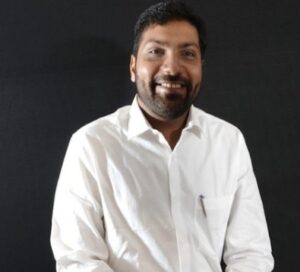
Invited Speaker:
Mr.Ritesh Thakur
Director
AI@Scale at Fractal
Brief Biography:
Mr.Ritesh Thakur is currently working as Director at AI@Scale at Fractal. Mr. Ritesh Thakur is experienced professional with Analytics background in multiple domains.
He has Strong technical background in Data Visualization, Business Intelligence tools, Big data technologies and E2E solution automation.
He is Strong consulting and solution design/architecture professional.
He played various roles as Senior Business Analyst, Analytics Lead-CPG, Senior consultant in Big data and visualizations domain and as a Associate Director.
Abstract:
This talk is mainly focused on basics of RPA, Need and RPA from business point of view. Robotic Process Automation is the technology that allows anyone today to configure computer software, or a “robot” to emulate and integrate the actions of a human interacting within digital systems to execute a business process. RPA robots utilize the user interface to capture data and manipulate applications just like humans do. They interpret, trigger responses and communicate with other systems in order to perform on a vast variety of repetitive tasks. Only substantially better: an RPA software robot never sleeps and makes zero mistakes.
Topic: ML Algorithms: Solutions to Non-linear data using MLP, Gradient Descent and Backpropagation

Invited Speaker:
Dr. Priyank Thakkar
Associate Professor at Institute of Technology, Nirma University
Brief Biography:
Machine Learning, Deep Learning, Data warehousing and data mining, Web Mining
Dr Priyank Thakkar is working as an Associate Professor in the Computer Science and Engineering Department. He has more than 18 years of teaching experience. He recieved his BE degree in Electronics Engineering from Sarvajanik College of Engineering and Technology, Surat and ME in Computer Engineering from Birla Vishwakarma Mahavidyalaya, Vallabh Vidya Nagar. He has done his PhD from Nirma University. His research interests include Data and Web Mining, Machine Learning, Soft Computing, Deep Learning, and their applications. He has published many research papers in international journals and conferences. At present, he is working on 2 funded research projects and also guiding 5 PhD students. He has served as a program committee member of many international conferences. He is also serving as a reviewer for several international journals.
Abstract:
ML Algorithms: Solutions to Non-linear data using MLP, Gradient Descent and Backpropagation
Standard back propagation is a gradient descent algorithm. Back-propagation is the essence of neural net training. It is the method of fine-tuning the weights of a neural net based on the error rate obtained in the previous epoch (i.e., iteration). Proper tuning of the weights allows you to reduce error rates and to make the model reliable by increasing its generalization. The MLP lies on its nonlinear ability, which actually originates from the function fl. A multilayer perceptron (MLP) is a class of feedforward artificial neural network (ANN). MLP utilizes a supervised learning technique called backpropagation for training. Its multiple layers and non-linear activation distinguish MLP from a linear perceptron.
Topic: ML Algorithms: Decision Trees and Random Forest, Support Vector Machines, Mining for Recommendations system
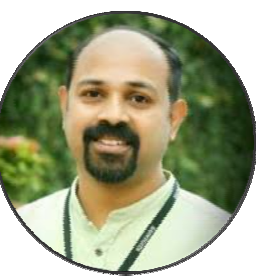
Invited Speaker:
Dr. P. S. Godwin Anand
Head, Research &Training at Omega Engineering Systems and Solutions
Brief Biography:
Skills-Technical Software
PLC Programming | MATLAB Simulink | LabVIEW | SCADA | Embedded Controller Programming. Necessary Applications-Word press | Adobe Photoshop | Microsoft word | Microsoft Excel | Microsoft Power Point.
Sir is currently holding position of Head, Research & Training, Omega Engineering Systems and Solutions since September 2019. He helps in promoting and facilitating leading-edge research, including collaborative and interdisciplinary research, in areas related to the goals of OESS, Providing sufficient support and tanning for, a community of innovative researchers to enhance research capacity and to increase internal and external research and Job opportunities, Developing networks between the research centre and researchers in the field in the public and private sectors, locally, nationally and internationally, Acting as the nexus between the Company and the community with respect to research initiatives of mutually beneficial linkages with industry in order to develop partnerships and collaborative research and transferring knowledge to society through outreach such as collaborative research, Trainings, seminar and workshops. He worked as Head of the Department of Applied Electronics & Instrumentation @SAINTGITS. He was Professor In charge of SAINTGITS Lab view Academy and Member of Syllabus Committee (AEI Department) , MG University. He headed Cochin Institute of Science & Technology as a Principal, and Looked after General Administration of the Entire College, overall supervision of teaching programmes, student’s welfare, guidance of teaching and Non Teaching staff. He is guiding Three Scholars in APJ Abdul Kalam Technological University, Kerala and serving as a Manuscript Reviewer in SCI Indexed Journals
Abstract:
ML Algorithms: Decision Trees and Random Forest, Support Vector Machines, Mining for Recommendations system. A decision tree is a supervised machine learning algorithm that can be used for both classification and regression problems. A decision tree is simply a series of sequential decisions made to reach a specific result. Random Forest is a tree-based machine learning algorithm that leverages the power of multiple decision trees for making decisions. Each node in the decision tree works on a random subset of features to calculate the output. The random forest then combines the output of individual decision trees to generate the final output.
Topic: Building a Recommendation System

Invited Speaker:
Mr. Pankaj Sharma
Senior Software Engineer
at Mphasis Ltd.
Brief Biography:
Technical Skills- Languages: SQL, Python, Shell, JavaScript/jQuery, R, Django, PHP,DBMS: PL/SQL, Oracle 11g, SQL Server 2005/2008.
Tools / Libraries / Framework Scikitlearn, Pandas, Numpy, NLTK, Matplotlib, SciPy, Keras, Tensorflow. General Machine Learning, NLP, Deep Learning, RNN.
Mr. Pankaj Sharma is currently working as Senior Software Engineer at Mphasis Ltd. He is a Data Scientist with an experience in executing data-driven solutions to increase efficiency, accuracy, and utility of internal data processing. He is experienced at creating data regression models, using predictive data modeling, and analyzing data mining algorithms to deliver insights and implement action-oriented solutions to complex business problems. He is a Senior Developer with more than Seven years of IT experience in developing and supporting the Web-based n-tier architecture applications using PL/SQL, HTML, with jQuery. He has about 2.5 years of working experience on client site as an onsite coordinator with an onshore/offshore model on development and maintenance projects. He has strong database maintenance and development skills with extensive knowledge in creating and working with PL/SQL packages, functions and triggers. He has capability to explore, learn and understand newer business domains and technology.
Abstract:
Building a Recommendation System. Recommendation engines discovers data patterns in the data set by learning consumers choices and produces the outcomes that co-relates to their needs and interests. In Real time examples are like Amazon, they have been using a recommendation engine for suggesting the goods or products that customers might also like. Many algorithms have been used in measuring user similarity or item similarity in recommender systems.
Topic: Principal Component Analysis
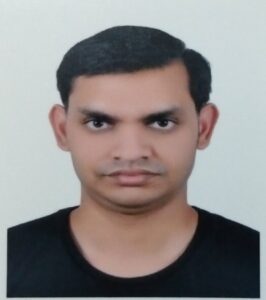
Invited Speaker:
Mr. Amar Patel
Senior Level Professional
at Qarmatek Pvt Ltd
Ahmedabad
Brief Biography:
Result-oriented professional targeting assignments in Data Analysis/AI/Technical Support/Process management/Operations Management with a leading organization
Mr. Amar Patel is currently working as Area Service Manager at Qarmatek Pvt Ltd. He has qualitative experience of over 13 years in Technical Support, Operations Management, Quality Management, Process Management and Team Management and is skilled in delivering technical support, empowering customer self-help and providing partner advisory services. He is experienced in managing escalated customer issues which include direct customer communications / interaction. He is capable in managing & leading teams for running successful process operations & experience of developing procedures, service standards for business excellence with excellence in working in collaboration with Operations Management in reviewing, scrutinizing and developing efficient and effective operational process flow. He is versatile, high-energy professional, successful in achieving business growth objectives within turnaround & rapid changing environment with excellent communication, people management, analytical and problem-solving skills.
Technical Skills- MS Word, Advance Excel, Outlook, WordPerfect, RF Scripts design using Aeroflex Lector and Scripter, Python Advance Programming , Machine Learning Algorithms
Abstract:
Principal component analysis (PCA) is a technique for reducing the dimensionality of such datasets, increasing interpretability but at the same time minimizing information loss. It does so by creating new uncorrelated variables that successively maximize variance. Principal Component Analysis (PCA) is used to explain the variance-covariance structure of a set of variables through linear combinations. To interpret each principal components, examine the magnitude and direction of the coefficients for the original variables. The larger the absolute value of the coefficient, the more important the corresponding variable is in calculating the component.
Topic: Robotic Process Automation

Invited Speaker:
Vividha Vartak
RPA Consultant
at Fractal Analytics
Brief Biography:
Vividha is currently working as RPA Consultant at Fractal Analytics.
She has experience of 5 years at Fractal Analytics. She also worked as Consultant for 3 years and Associate Analyst for 2 years. She has done Bachelor of Engineering (B.E.), Electrical, Electronics and Communications Engineering (2011 – 2015) from Sardar Patel Institute Of Technology
Abstract:
This talk is mainly focused on basics of RPA, Need and RPA from business point of view. Robotic Process Automation is the technology that allows anyone today to configure computer software, or a “robot” to emulate and integrate the actions of a human interacting within digital systems to execute a business process. RPA robots utilize the user interface to capture data and manipulate applications just like humans do. Using RPA tools, a company can configure software, or a “robot,” to capture and interpret applications for processing a transaction, manipulating data, triggering responses and communicating with other digital systems
Topic: Team Spirit Integrating IQ,EQ and SQ
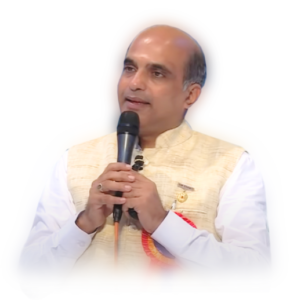
Invited Speaker:
Dr. E. V. Swaminathan
Trainer Teacher, Counselor and Consultant
Brief Biography:
Trainer, Teacher, Counsellor and Consultant with a clear focus on creating a Value Based Society
“Trainer, Teacher, Counsellor and Consultant with a clear focus on creating a Value Based Society”. At present, Sir is Master Trainer for ICT Academy of Kerala ( Govt of Kerala) for conducting FDP for all Engineering faculty in Kerala. He addressed more than 100 National conferences of Engineers, Doctors , Media ,Transport , Youth, Education , Nurses ,Environment , Researchers and Spiritualists. He is .associated with Brahmakumaris for the last 22 years. Sir is awarded with the Sunrise Peace award by Sunrise Peace Mission. Honoured by the Rotary Club with Award of Excellence and Nation Builder Award. Has a unique distinction of conducting Training at the highest battle field of the world at SBS – Siachen Battle School at the India -Pakistan – China border. He has also appeared on numerous television talk shows which are being aired on Zee Jagaran, Aastha ,Sanskar and Peace of Mind channels. He has trained students at IIT (Kharagpur), IIT( Mumbai ), IIT Kanpur and Centre of Excellence – IIM Calicut and IIM , Lucknow
Abstract:
This session focused on transforming the intelligence levels in employees.
Every employee has certain level of IQ (Intelligent Quotient), EQ (emotional quotient) and SQ (Spiritual Quotient). An organization can be successful only when these three quotients are high. IQ indicates whether the employee has the ability to work.
FDP1 : Foundation of Data Science
Topic: Data Sovereignty
Chief Guest & Keynote Speaker:
Mr. Vinit Goenka
Member of Governing Council, CRIS
Ministry of Railways, Gov. of India
Brief Biography:
Mr. Vinit Goenka is Author, Member-Governing Council-CRIS,Min of Railways,Fmr Member-IT Taskforce, Min of Shipping, Road Transport & Highways, New Delhi
Mr. Vinit Goenka is a politician associated with the Bharatiya Janata Party for past twenty-five years from Booth level worker at Mumbai to national level politics as the National Co-Convenor of IT Cell. Before joining the BJP, he was actively engaged with ABVP. He is an active politician with a firm commitment to the nation, passionate about tapping technology to change the way India works and working towards making India data and knowledge sovereign. He has proven expertise in various fields, data sovereignty, information technology, transportation & infrastructure, and agriculture. His nationalist credo keeps him occupied in various capacities in the Government of India. He is a Member of the Governing Council of CRIS – Centre for Railway Information System, an organisation under the Ministry of Railways, Government of India. .He was appointed a Member of the IT Task Force in the Ministry of Road, Transport & Highways and Shipping, Government of India. He has co-authored a Book “Data Sovereignty: The Pursuit of Supremacy.” The First ever book on Data Localisation and Digital Colonisation from Indian perspective. (Released on 21st May 2019) at Bombay Stock Exchange and then released in Delhi and across India. The book is now a reference guide in several institutions including IIM Vizag and part of discussions on this subject globally.
Abstract: This inaugural keynote talk is focused on Data Sovereignty. Data Sovereignty is the idea that data are subject to the laws and governance structures within the nation it is collected. The concept of data sovereignty is closely linked with data security, cloud computing and technological sovereignty. Currently, India’s data is being stored beyond Indian shores, which poses a risk over the control the country has on its own data. It will also give a birds eye view about how technology is driving the country.
Topic: Foundation of mathematics for data science: Maths for NN- activation functions
Invited Speaker:
Dr. D. R. Kalbande
Dean Industry Relations,
S.P.I.T. Mumbai
Brief Biography:
Research Interests: Soft computing (Neural Networks, Fuzzy Logic), Computer Network, Human Machine Interaction, Decision making and business Intelligence, Mobile application development for social cause.
He is currently a Professor, Computer Engineering and Dean(Industry Relations), Sardar Patel Institute of Technology, He has obtained a Ph.D in Technology from University of Mumbai in 2011. He has been awarded a Post-Doctorate (PDF)from Tata Institute of Social Sciences(T.I.S.S.) in 2016.He has also been honored as a Senior Research Fellow(SRF) on the NCW-TISS Project,funded by National Commission for Women,Govt.of India at T.I.S.S. from July 23,2016 to Oct 10, 2016. He was a Research Fellow on the CliX Project at T.I.S.S., funded by Tata Trust and M.I.T.(U.S.A.) from Feb 20,2017 to May 19,2017. He has over 19+ Years of experience in teaching & research. His research interests include Soft computing (Neural Networks, Fuzzy Logic),Computer Network, Human Machine Interaction Decision making and business Intelligence,Mobile application development for social cause, ICT for semi rural development for social cause. He has authored four books namely Graphical User Interface(Pareen Publications), MIS (Pareen Publications), Human Machine Interaction(Wiley Publications) and Digital Forensic(Wiley Publications). He has delivered and conducted workshops, seminars and Expert Talks on NS2, Neural Network, VB.Net and ADO.Net. Skinzy is the brainchild of him which has been turned into reality with the help of Dr.Uday Khopkar who is Dermatologist by profession. Skinzy’s flagship product “DermaPhoto” is an AI based mobile application that is able to detect skin diseases. He has patented 6 innovative ideas of his research work. He has guided two PhD theses.
Topic: Foundation of mathematics for data science: Maths for NN- activation functions
This session will focus on Maths for NN- activation functions.The purpose of the activation function is to introduce non-linearity into the output of a neuron. Neural network has neurons that work in correspondence of weight, bias and their respective activation function. Activation function decides, whether a neuron should be activated or not by calculating weighted sum and further adding bias with it.Popular types of activation functions and when to use them-Binary Step Function, Linear Function, Sigmoid, Tanh, ReLU, Leaky ReLU, Parameterised ReLU, Exponential Linear Unit.
Topic: Math for ML, Linear Algebra and Matrix operations
Invited Speaker:
Dr. S. K. Gupta
Associate professor,
Department of Mathematics
Indian Institute of Technology Roorkee
Brief Biography:
Dr. S. K. Gupta is an Associate Professor in the Department of Mathematics, IIT Roorkee with Research Interests: Optimization, Nonlinear optimization, Duality theory, Generalized convexity, Support Vector Optimization, Fuzzy mathematical programming.
Dr. S. K. Gupta is an Associate Professor in the Department of Mathematics, IIT Roorkee. His area of expertise includes nonlinear and non-convex optimization.He has received outstanding teacher award, (UG category for B.Tech first year) in year 2018 and Best teacher award in 2010. He is member of Operational Research Society of India and Working group on generalized convexity.He has guided 4 research scholars till date.He has taught Engineering Mathematics-II many times and also acted as a coordinator of the course. He has guided three PhD theses and has published more than 40 papers in various international journals of repute.
Topic: Math for ML, Linear Algebra and Matrix operations
Topic matrices computations involving rank, eigen values, eigen vectors, singularity transformations, (diagonalisation, Joradan canonical etc). It also covers vectors spaces, basis and dimension, linear transformation and their properties. Besides discussing the matrix theory, it also includes its applications in solving diverse science and engineering problems.It also contains methods to solve nonlinear optimization problems which includes convex programming, KKT optimality conditions, quadratic programming problems, separable methods, geometric and dynamic programming. It also covers some search techniques which are used to solve nonlinear programming problems.
Topic: Math for ML, Linear Algebra and Matrix operations
Invited Speaker:
Dr. Sanjeev Kumar
Associate professor,
Department of Mathematics
Indian Institute of Technology Roorkee
Brief Biography:
Research Interests: MATHEMATICAL IMAGE PROCESSING (Computational Algorithms for Image Restoration; Image Encryption and Secret Sharing; Quantum Imaging; 3-D Reconstruction), MACHINE LEARNING (Neural Networks and Tree-based Classifiers; Applications in Image Processing)
Dr.Sanjeev Kumar is working as an associate professor with Department of Mathematics, IIT Roorkee. Earlier, he worked as a postdoctoral fellow with Department of Mathematics and Computer Science, University of Udine, Italy and assistant professor with IIT Roorkee. He is actively involved in teaching and research in the area of computational algorithms, inverse problems and image processing. He has published more than 55 papers in various international journals conferences of repute. He has completed a couple of sponsored research projects and written several chapters in reputed books published with Springer and CRC press. He is Member of EEE Computer Society, SIAM, ACEEE, Life Int. Asso.of Pattern Recognition, IACSIT. He has received outstanding Teacher Award for Under Graduate Category in 2019, Best paper awards at IntConf on ECCS at NIT Kurukshetra in 2015 and MIUR Postdoctoral Fellowship at University of Udine in 2008. He has guided 12 research scholars till date.
Topic: Math for ML, Linear Algebra and Matrix operations
Topic contains matrices computations involving rank, eigen values, eigen vectors, singularity transformations, (diagonalisation, Joradan canonical etc). It also covers vectors spaces, basis and dimension, linear transformation and their properties. Besides discussing the matrix theory, it also includes its applications in solving diverse science and engineering problems.It also contains solution of system of linear equations, roots of non-linear equations, interpolation, numerical differentiation and integration. In particular, this includes topics like differentiation and integration of the functions of two or more variables together with their various applications. It plays an important role for solving various engineering sciences problems. It contains various topics related to the calculus of the functions of two or more variables. Therefore, it has tremendous applications in diverse fields in engineering sciences.
Topic: Statistics for data science: Population and samples.
Descriptive statistics: Categorical, numerical, visualization: histogram, cross-table, scatter plots, mean, median mode, skewness, variance, standard deviation, covariance.
Invited Speaker:
Dr. Vishwesh Vyawahare
Professor and Head of Electronics Engineering Dept
RAIT, Nerul, Navi Mumbai
Brief Biography:
Dr. Vishwesh Vyawahare is working as Professor, RAIT,Mumbai. He has done doctor in philosophy (PhD) in Systems and Control.He worked as Project Research Scientist-IDP in Systems and Control Engineering, Indian Institute of Technology Bombay.
He has published more than 70 papers in various international journals conferences of repute. He is a Branch Counselor for IEEE-RAIT. Research Interests: Power Electronics, Systems and Control.
Topic: Statistics for data science: Population and samples.
Descriptive statistics: Categorical, numerical, visualization: histogram, cross-table, scatter plots, mean, median mode, skewness, variance, standard deviation, covariance Tensors
Inferential statistics: Standard error, hypothesis testing, Data visualization
Probability refresher: Events, combinations, permutations and conditional probability
Statistics is a form of mathematical analysis that uses quantified models, representations and synopses for a given set of experimental data or real-life studies. Statistics studies methodologies to gather, review, analyze and draw conclusions from data
To summarize, the five reasons to study statistics are to be able to effectively conduct research, to be able to read and evaluate journal articles, to further develop critical thinking and analytic skills, to act an informed consumer, and to know when you need to hire outside statistical help.Descriptive statistics are used to describe the basic features of the data in a study. They provide simple summaries about the sample and the measures. Together with simple graphics analysis, they form the basis of virtually every quantitative analysis of data.Some statistical measures include-Mean, Regression analysis, Skewness, Kurtosis, Variance, Analysis of variance.Statistical inference is the process of using data analysis to deduce properties of an underlying distribution of probability. Inferential statistical analysis infers properties of a population, for example by testing hypotheses and deriving estimates. Statistics are used behind all the medical study. Statistic help doctors keep track of where the baby should be in his/her mental development. Physician’s also use statistics to examine the effectiveness of treatments. Statistics are very important for observation, analysis and mathematical prediction models.
Topic: Scalable data science, Scaling data Science algorithms and analytics using Big Data platforms. Distributed programming models for scalable Data, including Map Reduce, Stream processing and Graph processing, Design of and development on Big Data platforms and their optimizations on commodity clusters and Clouds.
Invited Speaker:
Dr. Preetida Jani
Professor, Computer engineering department
S.P.I.T. Mumbai
Brief Biography:
Research Interest-Wireless Communication, Network Security , Algorithms (Compression, Bioinformatics), Satellite Communication, Cognitive Radio.
Dr Preetida Jani is professor in computer Engineering department, Sardar Patel Institute of Technology. She has done PhD (Electrical Engineering – University of Technology, Sydney, Australia ,M.Eng.Sc (Digital Communication) University of New South Wales, Sydney, Australia. Mam has worked as a Senior Research Engineer in Industry Nokia Research Center (Finland) for 10 years as Professor in SardarVallabhbhai National Institute of Technology, Surat( For 7 months) and as Associate Professor in DhirubhaiAmbani Institute of Information and Communication Technology Gandhinagar, Gujarat, India.(For 2 Years).She has published more than 40 papers in various international journals conferences of repute. She has patented many innovative ideas of her research work.
Topic: Scalable data science, Scaling data Science algorithms and analytics using Big Data platforms. Distributed programming models for scalable Data, including Map Reduce, Stream processing and Graph processing, Design of and development on Big Data platforms and their optimizations on commodity clusters and Clouds.
This session covers basics of scalable data science,different algorithms which are used in scaling data science and analytics using big data platforms. It also give brief introduction to various distributed programming models for scalable data including Map reduce, stream processing and graph processing. it also focuses on design and development of big data platforms and their optimization on clouds.
Topic: Hands-on Python, Understanding Applications & Programming
Numpy, Scipy, Pandas, and Matplotlib, Sklearn. Packages Developing Projects to automate our daily task using Python (Like web scrapping, creating a new PDF book from loads of artifacts, extracting emails & mobile numbers from 1000’s of comments on social media & more)
Invited Speaker:
Mr. Rocky Jagtiani
Head – Training & Content Development Suven Consultants & Technology Pvt Ltd.
Adjunct Professor & Industry Mentor, SPIT
Brief Biography:
He is mentor to many top engineering colleges for training faculties through FDP’s and Bootcamps. He is involved in mentoring students on skill based subjects like Problem solving in Java data structures, Data Analytics, Statistics using Excel, Machine Learning and Advanced ML focusing on NLP* using Python. (*NLP – Natural Language Processing)
Mr Rocky Jagtiani has 19 year of training experience in Open Source Technologies like Java, Python, JavaScript, Databases & Machine learning.
By profession He is excellent (+qualified) technology trainer in following technologies – Web Development using PHP / Python / Java programming, Mobile App Development training in Android, Oracle SQL / PL-SQL programming, ML, DL using Python. As a passion he love to analyse IT Job requirements of client companies and source people with most relevant skill-sets. This helps both the Companies and the deserving Candidates. He is mentor to many top engineering colleges for training faculties through FDP’s and Bootcamps. He is registered as a freelance trainer with LnD departments of 17 IT MNC’s in India. He loves to analyse data using tools like Qlikview, Tableau or Orange, As well solve (real) problems using Python & Java. Has trained more than 15000 young working professionals(0-6 yrs WorkEx) till date.
web sites : www.ves.net.in, www.vesjc.org, www.vesimsr.com and many customised android app developed at an individual level. He has conducted lot of android work shops across colleges in Mumbai.
Many of the Certifications done are- Oracle Database Associate, Google Analytics ,Pandas & NLP, Oracle Certified Java Professional ,Python & Machine Learning ,Hacker rank certified
Interests- Cycling and walking (Keep healthy for higher productivity), Organizing Social Events (Acting as a volunteer in Social Causes and awareness).
He has involved in many social commitments. Social Commitment- India Teach For India mentor & volunteer (teaching under privileged children) 01/2019 – present Mumbai & Pune, Chembur Colony Yuvak Mandal Volunteer (Awareness & Social causes), 03/2008 – 03/2016 Mumbai, India
Topic:Hands-on Python, Understanding Applications & Programming
Numpy, Scipy, Pandas, and Matplotlib, Sklearn. Packages Developing Projects to automate our daily task using Python (Like web scrapping, creating a new PDF book from loads of artifacts, extracting emails & mobile numbers from 1000’s of comments on social media & more)
Python is powerful and fast; plays well with others;runs everywhere;is friendly & easy to learn;is Open.These are some of the reasons people who use Python would rather not use anything else.
In this session, participants will be introduced to hands on session on python starting from basic concept of python to introduction of various packages like Numpy, Scipy, Pandas, and Matplotlib, Sklearn. At the end session will be focusing on developing projects to automate our daily task using Python.
Topic: R Programming Fundamentals for data science
Invited Speaker:
Mr. Hoshang Karanjkar
Senior Software Engineer, SimpleCRM
Brief Biography:
Mr. Hoshang Karanjkar is currently working as Senior Software Engineer in SimpleCRM
He has 4+ years experience in corporate.
He has expertise in many technologies
Technology Worked-Web Technologies -HTML5, CSS3, Bootstrap
Languages – PHP, Python3, R, APIs -REST, Data handling in XML and JSON
CVS- GitHub Database PostgreSQL, MySQL
Cloud Technologies – AWS
Framework – Flask, CMS, WordPress
Topic:R Programming Fundamentals for data science
R is data analysis software: Data scientists, statisticians, and analysts—anyone who needs to make sense of data, reallyan use R for statistical analysis, data visualization, and predictive modelling.
In this session, participants will be introduced to hands on session on R covering all the topics like- Working with data types and variables, Vectors, matrices, lists, and data frames, Data import, Logical statements: loops, repeats, and functions, Data plotting and visualization, Introduction to basic statistical functions and packages.
Participant will learn how to program in R and how to use R for effective data analysis. In this session participant will learn how to install and configure software necessary for a statistical programming environment and describe generic programming language concepts as they are implemented in a high-level statistical language. Topics in statistical data analysis will provide working examples.
Topic: Coding dimensionality reduction in Python using PCA, SVD, LDA techniques
Invited Speaker:
Mr. Parvez Shaikh
(Director – Database Development
Media.Net Software Services)
Brief Biography:
Mr Parvez Sheikh is director of database development media.Net software services.He has technical expertise in Logical & Physical Data Modelling, Database Solution Designing, Server Performance Tuning, Project Implementation, Requirement Elicitation, Software Development, Application Maintenance
He is a Senior IT professional with more then 22+ years of experience in Software development, application maintenance, database design, development and administration in diverse roles across the organizational hierarchy. He is Skilled in automating business process, managing business applications, database administration, implementing standard IT process, proficient in design, development and implementation of archiving solution (central reporting database) for global logistics applications.Adept at enhancing operational efficiency by automating & simplifyingglobal logistics business process as well as streamlining existing application architecture and supporting tools.He is seasoned leader capable of providing direction to internal teams, managing cross-functional training, strengthening organizational diversity, increasing operational productivity and enhancing employee satisfaction and level of engagement.
Topic: Coding dimensionality reduction in Python using PCA, SVD, LDA techniques
Bonus topic: Handling Imbalanced Data
This is hands on session for dimensionality reduction using PCA, SVD, and LDA techniques python. It also involved coding for handling imbalanced data which the first and most important phase of any data science project.Dealing with imbalanced datasets entails strategies such as improving classification algorithms or balancing classes in the training data (data preprocessing) before providing the data as input to the machine learning algorithm.
Dimensionality reduction is the process of reducing the dimensionality of the feature space with consideration by obtaining a set of principal features. In this way, we could remove redundant and irrelevant features without incurring much loss of information. Feature extraction is also called feature projection.
Topic: Case Study on R-Programming
Invited Speaker:
Dr. Seema Kolkur
Assistant Professor,
Thadomal Shahani Engineering College
Brief Biography:
She is assistant professor in Computer Engineering department of Thadomal Shahani Engineering College
Area of specialization: Database System, Data Mining, Machine Learning
Dr Seema kolkur is assistant professor in computer Engineering department, TSEC,
She has done PhD in Computer Engineering. Madam has 20+ years of experience in teaching field. Her area of interests are Database System, Data Mining, Machine Learning. She has published more than 20 papers in various international journals conferences of repute.
Topic: Case Study on R-Programming
This session focuses on case study on R programming which includes Working Through a specific problem which involves Problem Statement, Transforming the Data, Exploratory Data Analysis , The Confidence Interval, Test of Significance, The Power of the test and how R commands are used to explore the problem.
Topic: Data Processing in Hadoop
Invited Speaker:
Prof Aparna Halbe
Assistant Professor
S.P.I.T. Mumbai
Brief Biography:
Area of Interests: Big data analytics, Neural network, Analysis of algorithm
She is assistant professor in Information Technology department of Sardar Patel Institute of Technology, Madam has 10+ years of experience in teaching and corporate field. She has published many papers in various international journals conferences of repute.
Topic-Data Processing in Hadoop:
Hadoop has become the de-facto platform for storing and processing large amounts of data and has found widespread applications. In the Hadoop ecosystem, you can store your data in one of the storage managers (for example, HDFS, HBase, Solr, etc.) and then use a processing framework to process the stored data.It is an open source framework that allows the storage and processing of Big Data in a distributed environment across clusters of computers using simple programming models.Hadoop splits files into large blocks and distributes them amongst the nodes in the cluster.This session mainly focuses on how to do data processing in Hadoop.
Topic: Introduction to SCALA, Map reduce using SCALA
Invited Speaker:
Prof Pramod Bide
Assistant Professor
S.P.I.T. Mumbai
Brief Biography:
Area of Interests: Machine Learning, Data mining, Big data Analytics, Internet of Things, Database, Cloud security,Cyber Security
He is assistant professor in Computer Engineering department of Sardar Patel Institute of Technology, Sir has 10+ years of experience in teachingfield He is pursuing PhD in Computer engineering. He has published more than 10 papers in various international journals conferences of repute. He has received Excellence in research award for year 2014- 2015 by Ramrao Adik Institute of Technology. He has delivered many hands on session in various workshops on the latest technologies and tools.
Topic- Introduction to SCALA, Map reduce using SCALA
This session mainly focuses on basics of SCALA and Map reduce using SCALA.
Scala is a general-purpose programming language providing support for both object-oriented programming and functional programming. The language has a strong static type system. Designed to be concise, many of Scala’s design decisions are aimed to address criticisms of Java.Scala is used for functional programming and strong static systems. It is object-oriented and it runs on JVM. It has the capability to interoperate with existing Java code and libraries. It is strongly considered to be a static type language and does not have a concept of primitive data.
Topic: PySpark in Google Colab
Invited Speaker:
Prof. Abhijeet Salunke
Assistant Professor
S.P.I.T. Mumbai
Brief Biography:
Area of Interests: Network and Security, Internet of Things, Cloud Computing
He is assistant professor in Computer Engineering department of Sardar Patel Institute of Technology, Sir has 10+ years of experience in teaching field He is pursuing PhD in Computer engineering. He has published many papers in various international journals conferences of repute.
Topic- PySpark in Google Colab
This session mainly focuses on basics of PySpark in Google Colab
Colaboratory is a Google research project created to help disseminate machine learning education and research. It’s a Jupyter notebook environment that requires no setup to use and runs entirely in the cloud. PySpark is the interface that gives access to Spark using the Python programming language. PySpark is an API developed in python for spark programming and writing spark applications in Python style, although the underlying execution model is the same for all the API languages.

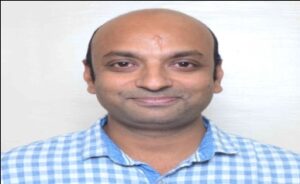
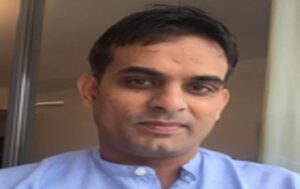
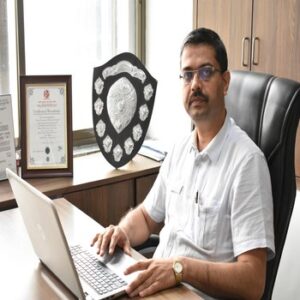
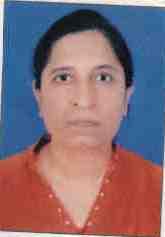

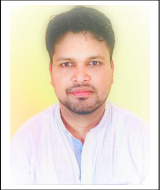
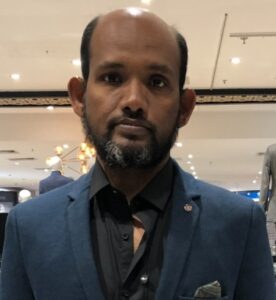




Woah! I’m really digging the template/theme of this site. It’s simple, yet effective. A lot of times it’s very hard to get that “perfect balance” between superb usability and appearance. I must say that you’ve done a awesome job with this. In addition, the blog loads super quick for me on Opera. Excellent Blog!
I have been exploring for a little bit for any high quality articles or weblog posts on this kind of area . Exploring in Yahoo I at last stumbled upon this website. Studying this info So i am satisfied to convey that I’ve a very just right uncanny feeling I came upon just what I needed. I so much indubitably will make sure to do not fail to remember this web site and provides it a glance on a relentless basis.
I like the valuable information you provide on your articles. I will bookmark your weblog and take a look at again here frequently. I’m fairly sure I will be informed many new stuff right here! Best of luck for the next!
Howdy! This is kind of off topic but I need some advice from an established blog. Is it tough to set up your own blog? I’m not very techincal but I can figure things out pretty quick. I’m thinking about making my own but I’m not sure where to begin. Do you have any tips or suggestions? Cheers
Another thing is that when evaluating a good online electronics retail outlet, look for online shops that are constantly updated, maintaining up-to-date with the hottest products, the perfect deals, plus helpful information on product or service. This will make sure that you are doing business with a shop that really stays ahead of the competition and provides you things to make intelligent, well-informed electronics buys. Thanks for the crucial tips I’ve learned from the blog.
I抳e recently started a blog, the information you offer on this site has helped me greatly. Thanks for all of your time & work.
I抦 impressed, I must say. Actually hardly ever do I encounter a weblog that抯 each educative and entertaining, and let me let you know, you’ve gotten hit the nail on the head. Your idea is excellent; the problem is something that not sufficient people are speaking intelligently about. I am very comfortable that I stumbled across this in my seek for one thing relating to this.
I was very happy to find this net-site.I wanted to thanks to your time for this glorious learn!! I positively having fun with every little bit of it and I have you bookmarked to take a look at new stuff you blog post.
Hello my friend! I wish to say that this post is amazing, nice written and include almost all vital infos. I抎 like to see more posts like this.
Hello there! Do you use Twitter? I’d like to follow you if that would be ok. I’m absolutely enjoying your blog and look forward to new posts.
hi!,I really like your writing so much! proportion we keep
in touch more approximately your article on AOL?
I require a specialist on this space to solve my problem.
Maybe that’s you! Having a look ahead to look you.
It is indeed my belief that mesothelioma will be the most lethal cancer. It’s got unusual characteristics. The more I actually look at it the greater I am convinced it does not conduct itself like a real solid human cancer. In the event mesothelioma is a rogue virus-like infection, therefore there is the probability of developing a vaccine and offering vaccination to asbestos open people who are vulnerable to high risk connected with developing future asbestos connected malignancies. Thanks for revealing your ideas about this important health issue.
One thing is that when you’re searching for a student loan you may find that you’ll want a cosigner. There are many conditions where this is correct because you might discover that you do not possess a past credit standing so the financial institution will require that you’ve someone cosign the credit for you. Interesting post.
Balancing email frequency is key to maintaining engagement.
The advice on avoiding spam filters is a game-changer!
Thank you, I’ve just been searching for info about this topic for ages and yours is the best I have discovered till now. But, what about the conclusion? Are you sure about the source?
In the great design of things you’ll receive an A+ with regard to hard work. Where you actually confused everybody was in all the facts. As it is said, details make or break the argument.. And that couldn’t be much more true right here. Having said that, allow me inform you just what did work. The article (parts of it) can be extremely convincing which is probably why I am taking the effort in order to opine. I do not make it a regular habit of doing that. 2nd, although I can certainly see the leaps in reason you come up with, I am not convinced of how you seem to unite your points which in turn help to make the actual conclusion. For the moment I will, no doubt yield to your point however hope in the near future you actually connect the facts much better.
I have taken note that of all types of insurance, medical care insurance is the most controversial because of the issue between the insurance plan company’s obligation to remain adrift and the client’s need to have insurance coverage. Insurance companies’ commission rates on health and fitness plans have become low, as a result some corporations struggle to make a profit. Thanks for the ideas you reveal through your blog.
I think other web site proprietors should take this website as an model, very clean and magnificent user genial style and design, let alone the content. You are an expert in this topic!
You really make it seem so easy with your presentation but I find this topic to be really something which I think I would never understand. It seems too complicated and very broad for me. I’m looking forward for your next post, I抣l try to get the hang of it!
I am actually grateful to the owner of this web site who has shared this enormous paragraph at here.
Hmm it looks like your website ate my first comment (it was super long) so I guess I’ll just sum it up what I submitted and say, I’m thoroughly enjoying your blog. I as well am an aspiring blog blogger but I’m still new to the whole thing. Do you have any tips and hints for newbie blog writers? I’d genuinely appreciate it.
I simply could not go away your web site before suggesting that I actually loved the usual info a person provide to your guests? Is gonna be back frequently in order to investigate cross-check new posts
I do not even know how I ended up here, but I thought this post was good. I do not know who you are but certainly you are going to a famous blogger if you aren’t already 😉 Cheers!
Thanks for your publication on this website. From my very own experience, there are occassions when softening upwards a photograph could possibly provide the wedding photographer with a chunk of an inspired flare. Sometimes however, that soft clouds isn’t just what you had planned and can frequently spoil an otherwise good picture, especially if you thinking about enlarging it.
I believe that avoiding processed foods could be the first step so that you can lose weight. They can taste very good, but refined foods include very little nutritional value, making you take more to have enough energy to get through the day. When you are constantly having these foods, changing to whole grain products and other complex carbohydrates will assist you to have more power while consuming less. Great blog post.
Webinar invitation email templates encourage registrations.
You completed a number of good points there. I did a search on the matter and found the majority of persons will have the same opinion with your blog.
Great craftsmanship!
hi!,I like your writing so so much! proportion we be in contact more approximately your post on AOL? I need a specialist on this space to resolve my problem. May be that is you! Having a look forward to see you.
Simply desire to say your article is as astounding. The clearness in your publish is simply cool and i can assume you are knowledgeable on this subject. Well along with your permission let me to seize your RSS feed to keep up to date with imminent post. Thanks one million and please carry on the rewarding work.
Magnificent goods from you, man. I’ve consider your stuff previous to and you’re just too wonderful. I really like what you’ve obtained here, certainly like what you are stating and the way in which in which you are saying it. You’re making it enjoyable and you continue to care for to keep it sensible. I can’t wait to read far more from you. That is really a terrific website.
I know a lot of folks whom I think would really enjoy your content that covers in depth. I just hope you wouldn’t mind if I share your blog to our community. Thanks, and feel free to surf my website Webemail24 for content about Sports Betting.
You made some really good points on your post. Definitely worth bookmarking for revisiting. Also, visit my website Seoranko for content about Accounting.
Thanks for your article on this weblog. From my own personal experience, many times softening up a photograph could possibly provide the professional photographer with an amount of an creative flare. Often times however, that soft blur isn’t what exactly you had planned and can frequently spoil a normally good photo, especially if you consider enlarging this.
Hello, i think that i saw you visited my web site so i came to 搑eturn the favor?I’m trying to find things to enhance my web site!I suppose its ok to use a few of your ideas!!
excellent points altogether, you just gained a brand new reader. What would you suggest in regards to your post that you made a few days ago? Any positive?
One thing I’ve noticed is that there are plenty of fallacies regarding the banking institutions intentions any time talking about property foreclosures. One misconception in particular is always that the bank wishes to have your house. The lender wants your dollars, not your house. They want the bucks they gave you along with interest. Preventing the bank will simply draw some sort of foreclosed realization. Thanks for your publication.
I am no longer positive the place you’re getting your info, but good topic. I needs to spend a while learning much more or figuring out more. Thank you for excellent information I was on the lookout for this info for my mission.
I do trust all of the ideas you have offered in your post. They’re really convincing and will certainly work. Still, the posts are very short for beginners. Could you please prolong them a little from subsequent time? Thank you for the post.
Please let me know if you’re looking for a article writer for your site. You have some really good articles and I feel I would be a good asset. If you ever want to take some of the load off, I’d really like to write some content for your blog in exchange for a link back to mine. Please shoot me an email if interested. Kudos!
Thanks for your tips. One thing I’ve got noticed is the fact banks in addition to financial institutions know the dimensions and spending behavior of consumers and understand that many people max outside their cards around the holidays. They correctly take advantage of this specific fact and start flooding your own inbox as well as snail-mail box by using hundreds of no interest APR credit card offers soon after the holiday season comes to an end. Knowing that if you’re like 98 of all American community, you’ll rush at the opportunity to consolidate card debt and transfer balances towards 0 interest rate credit cards.
Thanks for your post. I would also love to say that the health insurance brokerage also works well with the benefit of the actual coordinators of your group insurance coverage. The health agent is given a directory of benefits looked for by an individual or a group coordinator. What a broker does is hunt for individuals and also coordinators which will best match up those wants. Then he offers his advice and if both parties agree, the actual broker formulates a binding agreement between the two parties.
I like the helpful info you provide in your articles. I抣l bookmark your blog and check again here frequently. I am quite certain I抣l learn lots of new stuff right here! Good luck for the next!
I抳e recently started a web site, the information you offer on this web site has helped me tremendously. Thanks for all of your time & work.
My brother recommended I may like this blog. He was once entirely right. This put up actually made my day. You cann’t believe just how so much time I had spent for this info! Thank you!
Hi! I just wanted to ask if you ever have any issues with hackers? My last blog (wordpress) was hacked and I ended up losing several weeks of hard work due to no backup. Do you have any methods to protect against hackers?
Do you mind if I quote a couple of your articles as long as I provide credit and sources back to your website? My blog is in the exact same niche as yours and my visitors would certainly benefit from some of the information you provide here. Please let me know if this ok with you. Thank you!
Hello my friend! I wish to say that this article is awesome, nice
written and come with almost all vital infos. I would
like to look more posts like this .
Thanks for the ideas you are giving on this website. Another thing I’d like to say is that often getting hold of copies of your credit rating in order to scrutinize accuracy of the detail would be the first action you have to undertake in credit repair. You are looking to freshen your credit reports from damaging details problems that damage your credit score.
Awesome page with genuinely good material for readers wanting to gain some useful insights on that topic! But if you want to learn more, check out ArticleHome about Anime. Keep up the great work!
Hello my loved one! I want to say that this post is amazing, great written and include approximately all significant infos. I抎 like to look extra posts like this .
I have learn some just right stuff here. Definitely worth bookmarking for revisiting. I surprise how a lot effort you put to create any such wonderful informative site.
Having read your posts. I believed you have given your readers valuable information. Feel free to visit my website Autoprofi and I hope you get additional insights about Car Purchase as I did upon stumbling across your site.
Thanks for any other informative blog. The place else may just I am getting that kind of info written in such an ideal means? I’ve a challenge that I am just now running on, and I’ve been on the look out for such information.
I just couldn’t depart your web site prior to suggesting that I actually enjoyed the standard information a person provide for your visitors? Is going to be back often to check up on new posts
Superb and well-thought-out content! If you need some information about Data Mining, then have a look here Articlecity
Superb layout and design, but most of all, concise and helpful information. Great job, site admin. Take a look at my website Articleworld for some cool facts about Branding.
Very interesting points you have observed, appreciate it for posting.Blog range
Ensure your website’s authority and increase organic traffic with these updated resources for SEO backlink websites 2024.
With your post, your readers, particularly those beginners who are trying to explore this field won’t leave your page empty-handed. Here is mine at Article Sphere I am sure you’ll gain some useful information about Website Traffic too.
Very nice article and right to the point. I am not sure if this is really the best place to ask but do you folks have any ideea where to hire some professional writers? Thanks in advance 🙂
excellent post, very informative. I wonder why the other experts of this sector do not notice this. You must continue your writing. I’m confident, you have a huge readers’ base already!
Together with the whole thing which seems to be building within this specific subject matter, a significant percentage of points of view are somewhat stimulating. Having said that, I am sorry, because I can not subscribe to your entire theory, all be it exhilarating none the less. It seems to us that your opinions are actually not totally rationalized and in simple fact you are yourself not completely confident of your argument. In any case I did take pleasure in looking at it.
Simply wish to say your article is as amazing. The clearness in your post is simply excellent and i could assume you are an expert on this subject. Fine with your permission allow me to grab your feed to keep updated with forthcoming post. Thanks a million and please keep up the rewarding work.
Best Passive Income System 2024 Revealed – Guaranteed Daily Income – Visit: https://bit.ly/empiresystemvip
Best Passive Income System 2024 Revealed – Visit https://bit.ly/empiresystemvip
Best Passive Income System 2024 Revealed – Visit https://bit.ly/empiresystemvip
Best Passive Income System 2024 Revealed – Visit https://bit.ly/empiresystemvip
New Passive Income System Revealed – Guaranteed Daily Income – Leaked Course From Darkweb – https://bit.ly/empiresystemvip
Best Passive Income System 2024 Revealed – Visit https://bit.ly/empiresystemvip
Guaranteed Daily Income with our new passive income system – https://bit.ly/empiresystemvip
Guaranteed Daily Income with our new passive income system Visit https://bit.ly/empiresystemvip
Best Passive Income System 2024 Revealed – Visit https://bit.ly/empiresystemvip
Best Passive Income System 2024 Revealed – Visit https://bit.ly/empiresystemvip
Newbie Friendly Method Reveals How We Make Hundreds Daily With FREE Traffic In Just 30 Minutes Per Day. I’m giving a guide to you for FREE. More Info: https://bit.ly/empiresystemvip
How To Start An Online Business That Earns Daily Commissions – https://bit.ly/empiresystemvip
Best Passive Income System 2024 Revealed – Guaranteed Daily Income – Visit: https://bit.ly/empiresystemvip
Best Passive Income System 2024 Revealed – Visit https://bit.ly/empiresystemvip
Best Passive Income System 2024 Revealed – Visit https://bit.ly/empiresystemvip
Best Passive Income System 2024 Revealed – Visit https://bit.ly/empiresystemvip
Best Passive Income System 2024 Revealed – Guaranteed Daily Income – Visit: https://bit.ly/empiresystemvip